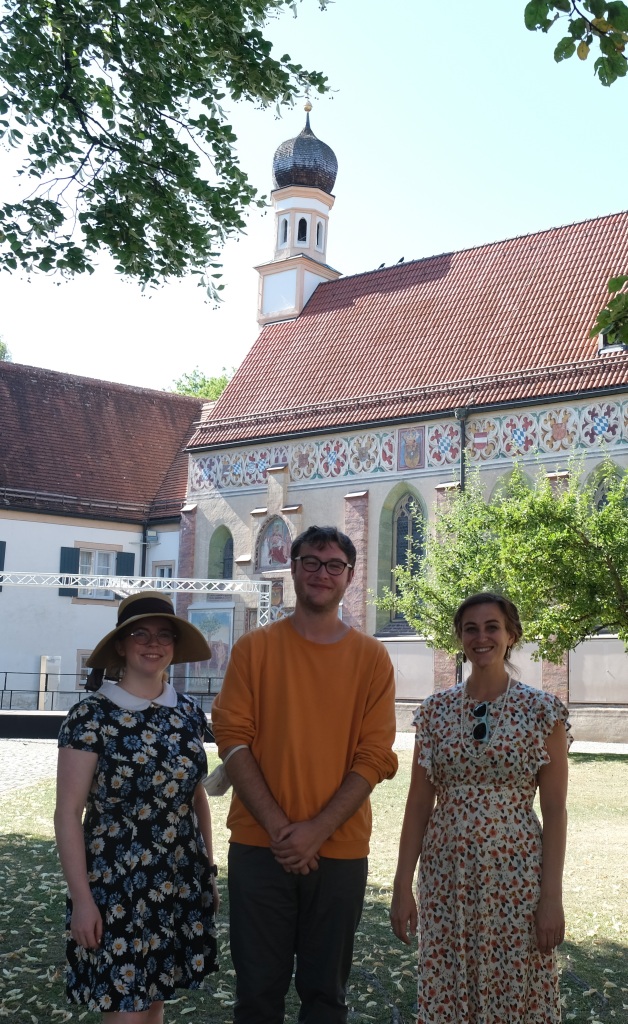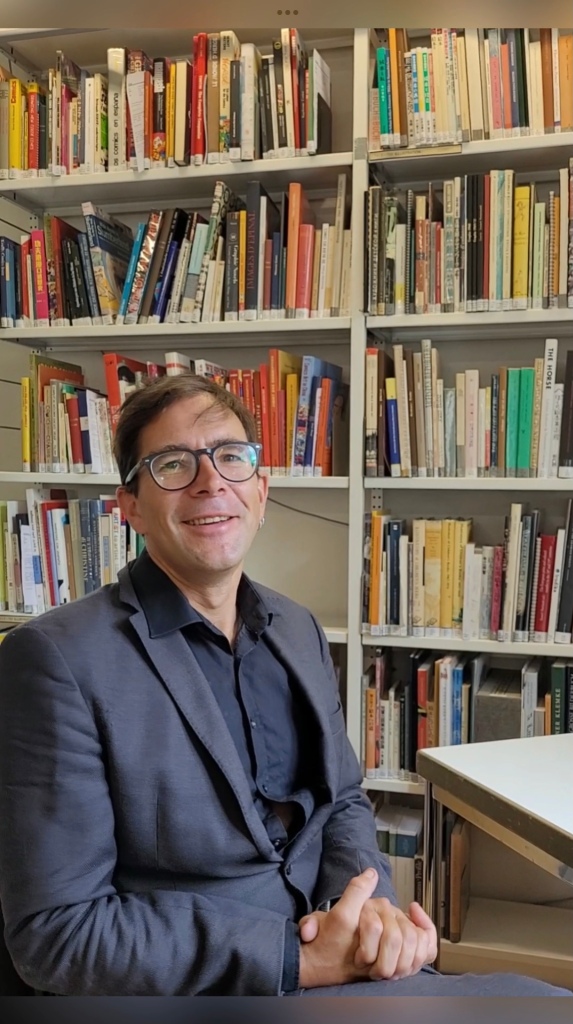A hot summer full of trips to the Munich lakes and visits to local beer gardens comes to an end. Of course that’s not everything our fellows did during their visit. First and foremost they came to the International Youth Library to work on their research projects, dissertations or articles about children’s and youth literature. Let’s meet a few of them!

Alexander Korb (UK/Czech Republic)
This time we’re actually introducing someone who isn’t an expert in children’s literature but more in the history of Nazi Germany. Historian Dr. Alexander Korb, currently working as Associate Professor at the University of Leicester (UK), is generally interested in how German intellectuals became Nazis during the 1920s and 30s and then how they stopped being Nazis in the 1940s and 50s. He came to the IYL because it hosts about 80 boxes of papers from Hans Baumann, a German children’s book author.
„What kind of Nazi was Baumann during the second world war?” or “How did he stop being a Nazi?” are questions that Alex hoped to find the answers to at the International Youth Library in order to write his monography Hans Baumann and the Nazi past of the children’s book author.
Alex himself was born and raised in Eastern Munich and was very happy to get to know the Western part a bit more. Since children’s literature is a completely new field to him, he appreciated all the knowledge and the help from the people around him during his stay.
Lauren Rizzuto (USA)
Lauren Rizzuto from New Orleans, Louisiana, teaches at the Nicholls State University and worked at the International Youth Library as a fellow during June and July. She is interested in environmental justice and specifically how this justice is communicated in children’s picture books. At the IYL she had the opportunity to compare those picture books in a global context to see how messages of climate change alter across cultures and regions as well as stylistically. During her stay she worked on her research topic „Denaturalizing ‚nature‘: Gardens and environmentalism in children’s picture books“.
Lauren told us that she learned something new everyday and that she loves the nature and the beer of Munich. We hope we get the chance to invite Lauren to a beer or two in the future!

Noah Mullens (USA)
Although he only stayed for one month, Noah Mullens from the US certainly had an exciting time at the International Youth Library. Being only 23 and an early graduate student, the Graduate Assistant used his time at the International Youth Library to improve his skills in researching and learning more about his PhD topic before he’s able to zone it in.
Noah’s interest in children’s literature started in 2018 during his Bachelor’s studies when he did an internship at the Baldwin Library of Historical Children’s Literature. Having focused only on Anglophone Literature before, he then began to branch out and develop an international perspective and lately, in 2021, presented at the IRSCL (International Research Society for Children’s Literature).
The main subject of Noah’s research involves how the concept behind a collection works around books that are not easily classifiable. How is children’s literature cataloged and circulated in certain systems? This is why he chose the topic “Circulation and Classification of MSM in pre-200s Youth Literature”.
He also wishes to come back to Munich once he moved past the exploratory phase of his dissertation. We can’t wait!!!
Vera Veldhuizen (The Netherlands)
In 2020 Vera told us “I will be back!” and she kept her promise. The Assistant Professor in European Languages and Cultures at the University of Groningen, also recently finished her PhD in children’s literature at the University of Cambridge.
This time at the IYL she focused on detective children’s literature and the cognitive narratological approach to the construction of narrative truth, or „What really happened in children’s literature”. In these books people tell lies, the narrator is unreliable (doesn’t know or doesn’t tell the reader everything) and at the end there’s a person with authority who tells the reader what happened. Why do we believe what he says?
Usually when we ask fellows “What is your favourite thing about the library?” most of them mention the beautiful scenery or the amount of books. But Vera’s favourite thing about the IYL is our colleague Nadine Zimmermann, who is responsible for the reading room and helps the fellows with their search for books. We love that!

